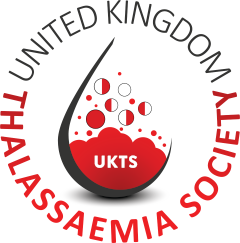Pregnancy
It is recommended that pregnant women modify their diet and lifestyle by avoiding smoking and alcohol consumption. It is also advised to start taking supplements for vitamin D, folic acid and calcium; some before and during pregnancy, as well as breast-feeding. Please see Table 1 for a summary. If the expectant woman has thalassaemia, these measures are even more important. We discuss each of the supplements required in turn.
Vitamin D
Vitamin D plays an important role in regulating calcium and phosphate in the body. These nutrients are needed to keep bones, teeth and muscles healthy. This is especially important for women with thalassaemia, who are often osteoporotic and vitamin D-deficient. Vitamin D levels should be optimised before pregnancy and thereafter maintained within the normal range. It is advised to get a blood test pre-conception to ensure your vitamin D levels are within the correct range and therefore taken the necessary actions in response to the results.
Food sources of Vitamin D are limited and those that have vitamin D, have minimal amounts such as oily fish, some red meats and eggs. Some fortified products add extra vitamin D such as milk, dairy products, dairy alternatives, breakfast cereals and bread. Please be mindful that people with thalassaemia should limit their iron intake and these foods are high in iron, such as red meat, thus consumption of these foods should be moderated. Foods such as green leafy vegetables are a source of iron too, however you may not be so concerned with these as they have a lower bioavailability of non-haem iron.

Calcium
Calcium has several important functions including helping to build strong bones and teeth for both the baby and the mother, regulating muscle contractions and ensuring blood clots normally. It also plays a major role in bone health and strength as a lack of calcium can lead to osteoporosis, which people with thalassaemia are already prone to.
The recommended calcium intake can be met from the diet but if you are struggling to reach the recommended intake, supplements can be taken. Dietary sources of calcium include milk, cheese and other dairy food, soya drinks with added calcium, calcium fortified milk alternatives, tofu and tahini, bread and anything made with fortified flour, fish where you eat the bones, such as sardines and green leafy vegetables such as kale, okra and spinach.
Folic acid
Folate demand in pregnancy is normally increased, and all women with thalassaemia are advised to receive folic acid supplementation at a dose of 5 mg/day, in order to prevent foetal neural tube defects, as well other complications. It is recommended to take a folic acid supplement as soon as you are trying for a baby and up to 12 weeks of the pregnancy.
Food sources of folic acid include spinach, kale, brussels sprouts, cabbage, broccoli, beans and legumes (eg, peas, black eye beans), yeast and beef extracts.

*Please check with your haematology team as the recommended dosage may be different*
If you have thalassaemia and are thinking of having a baby, before you take any supplements, please speak to your GP and haematology team who can advise you on your health and nutritional needs, specific to you and your condition. Alternatively, you can ask to be referred to a registered dietician.
Sources:
Pregnancy in women with thalassemia: challenges and solutions (Petrakos et al., 2016)
https://www.ncbi.nlm.nih.gov/pmc/articles/PMC5019437/
Effect of folate supplement on pregnant women with beta-thalassaemia minor (Leung et al, 1989)
